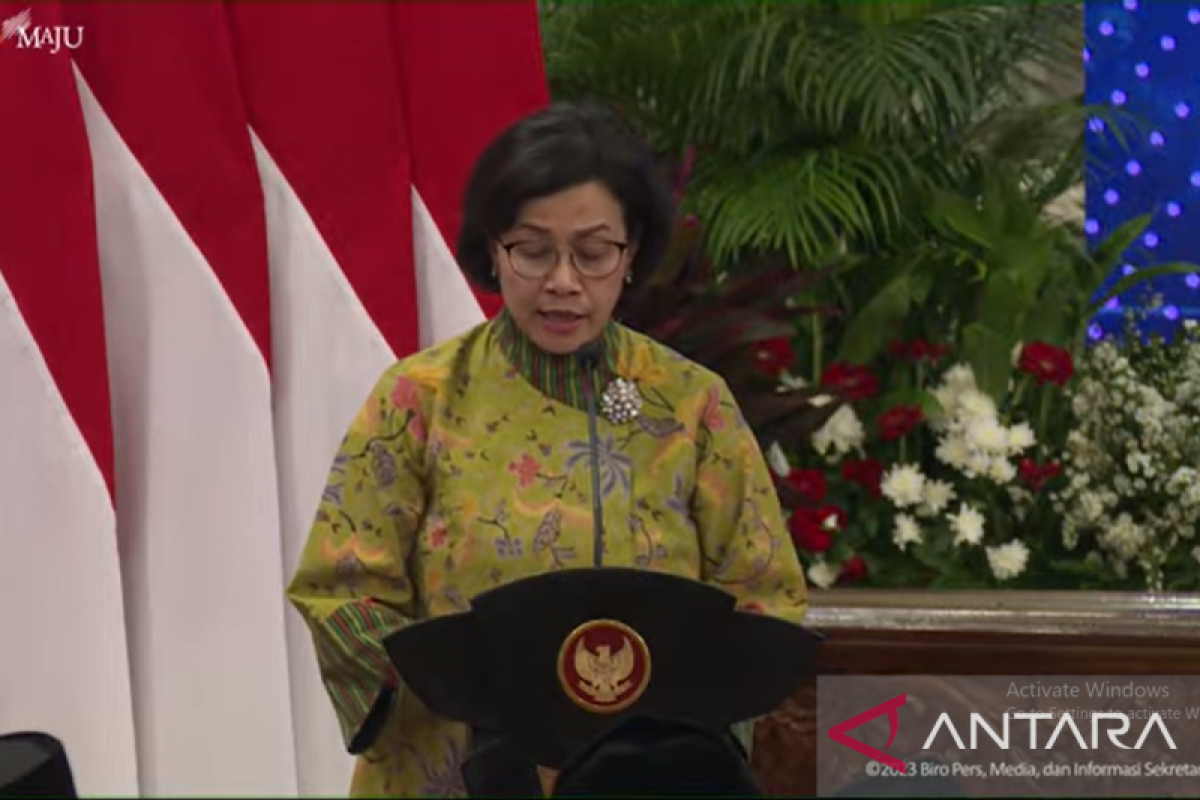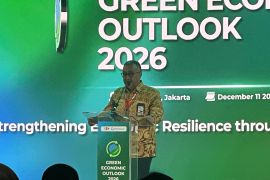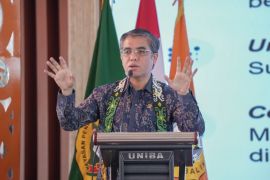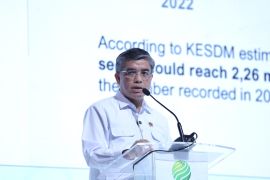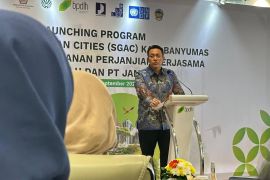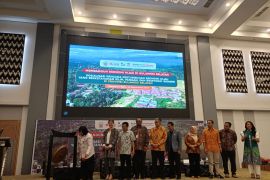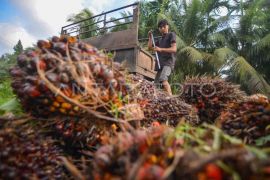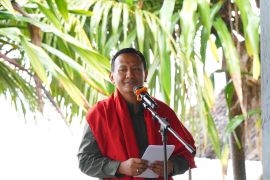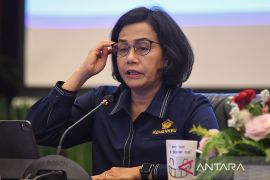"State spending in 2024 is also aimed at completing priority infrastructure to accelerate green economic transformation and support bureaucratic and state apparatus reform," Sri Mulyani stated at the handover of the Budget Implementation List (DIPA) and Transfer Allocation Book to Regions for Fiscal Year 2024 in Jakarta on Wednesday.
She explained that state expenditure in the 2024 State Budget reached Rp3,325.1 trillion, or grew 8.6 percent as compared to the 2023 State Budget.
The APBN makes utmost efforts to fulfill all national development priority programs starting from protecting the people, including vulnerable groups, restoring the economy, encouraging transformation, developing all corners of the region, and also improving defense and security.
"This effort is carried out while maintaining the APBN as an instrument whose health, sustainability and credibility must be maintained. In this way, the APBN fiscal policy can continue to be effective in maintaining the economy and protecting the Indonesian people," she affirmed.
The 2024 State Budget was prepared with the assumption of optimistic macro indicators but remaining alert to the rapidly changing dynamics.
The basic macro assumptions in the 2024 APBN comprise economic growth of 5.2 percent, controlled inflation of 2.8 percent, rupiah exchange rate of Rp15 thousand per US dollar, interest rate on 10-year Government Securities (SBN) of 6.7 percent, ICP of 82 US dollars per barrel, as well as oil lifting of 635 thousand barrels per day and gas lifting of 1.033 million barrels of oil equivalent per day.
"Assumptions from economic indicators in 2024 will, of course, still be influenced by developments in the global economy. Therefore, in maintaining the economy, we are required to also maintain the health of the APBN," she stated.
In managing the State Budget, the minister emphasized the quality of spending, synergy, and harmonization of the State Budget and Regional Budget (APBD) as well as anticipating uncertainty that will continue to arise through budget prioritization, thereby necessitating automatic adjustment.
Earlier, Coordinating Minister for Economic Affairs Airlangga Hartarto assessed that the State Budget also prioritized projects to overcome climate change and encourage climate-friendly activities.
In order to ensure this, the government implements a Climate Budget Tagging mechanism at the national and regional levels that is able to track climate change budget allocations as well as present data on activities and results.
Indonesia has increased its Nationally Determined Contribution (NDC) emission reduction target commitment, from 29 percent to 31.89 percent through its own efforts, and from 41 percent to 43.20 percent with international assistance by 2030.
The Enhanced NDC is aligned with the Long Term Low Carbon and Climate Resilience Strategy 2050 and the vision to achieve net zero emissions by 2060.
Related news: Government launches policy package to mitigate El Nino impacts
Related news: Jokowi: Do not spend state income on imported products
Translator: Martha Herlinawati Simanjuntak, Cindy Frishanti Oc
Editor: Rahmad Nasution
Copyright © ANTARA 2023
